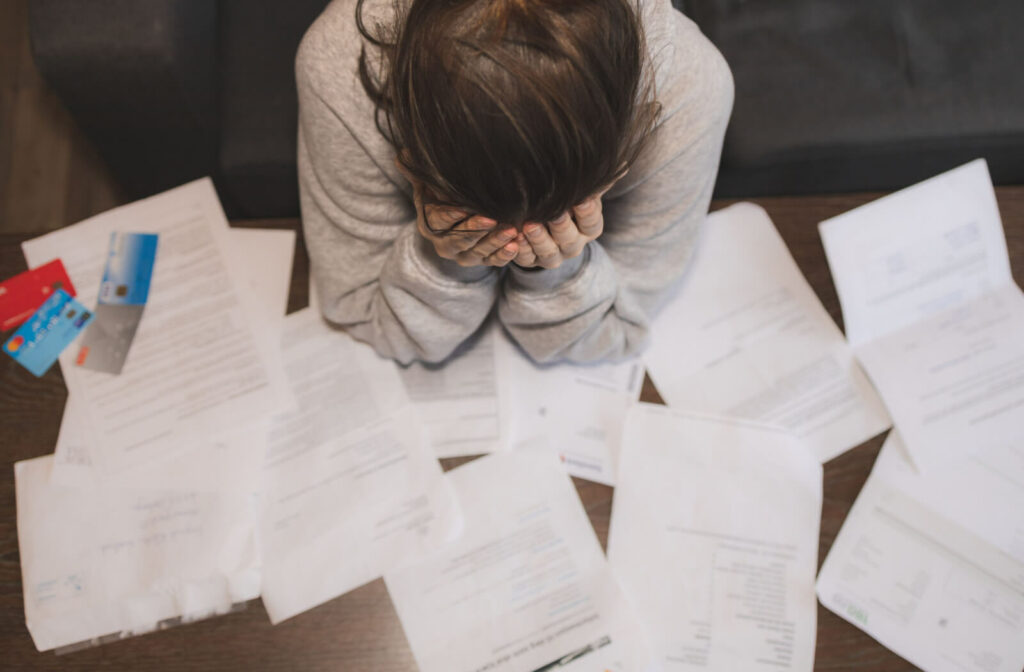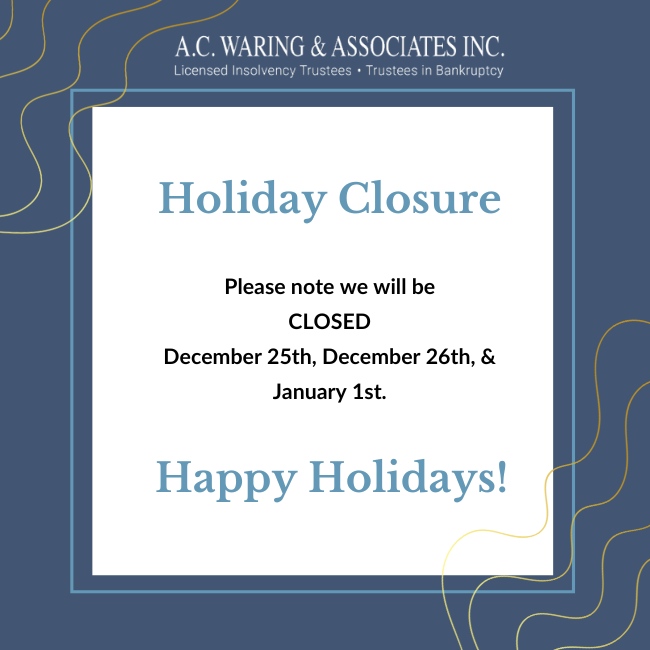Filing for bankruptcy is a serious decision that can affect your financial future. Wiping out your approved debts and beginning again with a blank slate may be the key to starting over with your credit.
Bankruptcy is not a decision you should make on your own. Licensed insolvency trustees are invaluable resources to help you make informed choices with knowledgeable advice.
A licensed insolvency trustee (LIT) is the only regulated professional in Canada who can manage bankruptcy filing or consumer proposals. To file bankruptcy in Canada, you need a LIT in your corner to help.
What Can a Licensed Insolvency Trustee Do for You?
Whether you are declaring bankruptcy personally or for your business, you need a LIT to work with creditors on your behalf and stop collection action against you. If you need relief for only a portion of your debt, a LIT can negotiate with creditors to agree on a payment plan.
If you decide to file for bankruptcy, your LIT can organize your monthly payments, which can be resolved in as few as 9 months.
Working with a LIT can give you beneficial advice on your current financial state and provide resources and education to avoid debt and financial problems in the future.

When Should You Contact an Insolvency Trustee?
The bankruptcy process begins with you assessing the state of your finances and recognizing the problems. By facing your debt problems rather than ignoring them, you can begin to declare bankruptcy and achieve relief sooner.
If you are unsure whether you should declare bankruptcy, signs in your finances can indicate whether you should consider it. You should think about contacting a LIT if:
- Your credit cards are always maxed out, and you cannot get ahead of the interest
- You are paying your bills with credit cards
- You are using cash advances to cover your expenses
- Creditors are starting legal proceedings
- You are at risk of losing your home
- Lost income is making you rely on debt to fill the gaps
- You are overwhelmed, anxious, or depressed because of your finances
If you feel like you can never get ahead and are hopeless, a LIT can help you start the next chapter of your life that begins after bankruptcy.
How Does Filing for Bankruptcy Work?
At your first meeting with your LIT, you will discuss your financial situation in depth. You should bring a list of your creditors, assets, and personal information.
If you decide bankruptcy is the right path, your LIT can complete the legal forms to file with the Office of the Superintendent of Bankruptcy. Once you are formally declared bankrupt, there will be a “stay of proceedings” for 9–21 months where unsecured creditors cannot send you to collections, garnish your wages, or take legal action against you.
During your bankruptcy period, you may receive 2 financial counselling sessions that are mandatory to complete. Once you receive a “discharge” clearing away your debts, you can start over.
Which Debts Can Be Settled and Which Debts Cannot?
Most unsecured debts are eligible to be cleared in bankruptcy, including:
- Payday loans
- Credit card balances
- Outstanding utility bills
Some unsecured loans cannot be discharged, including:
- Student loans less than 7 years old
- Court-ordered debt and fines
- Child and spousal support
Your vehicle, home, and mortgage are debts you cannot clear with bankruptcy.
What Happens After You File for Bankruptcy?
The impact of your bankruptcy filing can be a relief, but it can have some effects that can last a few years.
Credit Score
When you file for bankruptcy, your credit score automatically goes down to the lowest rating possible. The hit on your credit score can generally last up to 6 or 7 years for your first bankruptcy filing, but if you have declared more than once, you will retain the low rating on your credit report for 14 years.
Co-Signer and Spouse
If you had a co-signer on any of your loans, they would still be responsible for the debt and still have to make the payments after you declare bankruptcy.
You should make your LIT aware of any joint assets. Generally, your debts are your own, but creditors can hold your spouse responsible for payments if you have a joint or co-signed debt.
Joint assets may have to be liquidated to pay creditors, but your LIT can review each asset individually.
Student Loan Debt
Student loans are not eligible to be written off, but government lenders offer programs through your province or territory and federal student loan programs.
The Repayment Assistance Plan (RAP) can relieve those with government loans. Your student loans under the RAP can lower your payments or offer another 6 months of your grace period.
If you file for bankruptcy 7 years after your period of study ended, a discharge from the student debt is possible.
Key Takeaways
- Only a Licensed Insolvency Trustee (LIT) can file bankruptcy in Canada and guide you through your options, including consumer proposals.
- Filing triggers an immediate stay of proceedings, stopping most collection calls, wage garnishments, and legal action from unsecured creditors.
- Most unsecured debts can be discharged, but some—like recent student loans, court fines, and child/spousal support—cannot.
- Your credit will be affected, but many people begin rebuilding as soon as they receive their discharge.
- Speaking with an LIT early can help you regain control and determine the best path toward a fresh financial start.
Get Help with Your Debt
There is no reason to be embarrassed about filing for bankruptcy. In several situations, bankruptcy may be the best option to address your debt. Our licensed insolvency trustees in Edmonton are experienced and prepared to help you move forward.
Contact us to schedule a free consultation to discuss your debt and help you solve your financial troubles.





